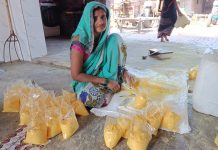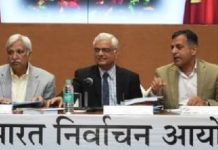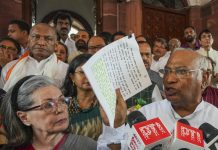 He’s seventeen and a half. A series of parallel welts run up his arms, rising in ridges from his dark skin — mementos of knife fights and blade slashes. He returned the previous night from a juvenile detention centre. It was the fourth time he’d been arrested in the past two-and-a-half years. The charge this time was attempted murder. He had brawled with a group of boys who had “come to settle some old scores”.
He’s seventeen and a half. A series of parallel welts run up his arms, rising in ridges from his dark skin — mementos of knife fights and blade slashes. He returned the previous night from a juvenile detention centre. It was the fourth time he’d been arrested in the past two-and-a-half years. The charge this time was attempted murder. He had brawled with a group of boys who had “come to settle some old scores”.
He says he’s happy to be back here in the narrow alleys of Trilokpuri in East Delhi. He enjoys eating eggs, so his mother made him some for dinner. Still, he glances nervously around him at the women and children peering from the balconies and terraces overhead.
In this crowd, he’s alone. Disdained by society, but, more importantly, ill-served by a juvenile justice system that is insensitive to any need beyond the most basic. This is a system that barely puts up any pretence of following through with its rehabilitative purpose. In its indifference, it has failed and continues to fail the city’s children.
Back in December last year, the Delhi gangrape brought juvenile crime under intense scrutiny. With it came a clamour for harsher punishments and demands that 16- year-olds be tried as adults. Opinions seesawed between the bloodthirsty and the kneejerk, between blaming the kids and blaming the system.
Read More>
 From 18 To 16 Is A Step Backwards
From 18 To 16 Is A Step Backwards
Let’s have the sense not to give in to panic and fear and protect our children not ourselves
There can be no keener revelation of a society’s soul than the way it treats its children,” Nelson Mandela famously said. At seminars and conferences on children’s rights, this is a popular quote. In the aftermath of the Delhi gangrape, we need to search our souls, ask ourselves how Mandela’s words apply to us. There is no doubt that the outrage felt and shown by all of us has had positive ramifications, forcing us to think about the way we treat women and girls in India.
Read More>
 Engage Kids, Don’t Lock Them Up
Engage Kids, Don’t Lock Them Up
Juvenile offenders can be contributing members of society. It only needs us to open our minds
IT HAS been over four years since the Tehelka Foundation started working in the observation home for juvenile offenders at the Sewa Kutir Complex, Kingsway Camp, Delhi. Working at the intersection of youth and citizenship for the past eight years, the Foundation uses theatre and the arts as tools of empowerment, building bridges between youth from marginalised sections of society and those from more privileged backgrounds.
Read More>













